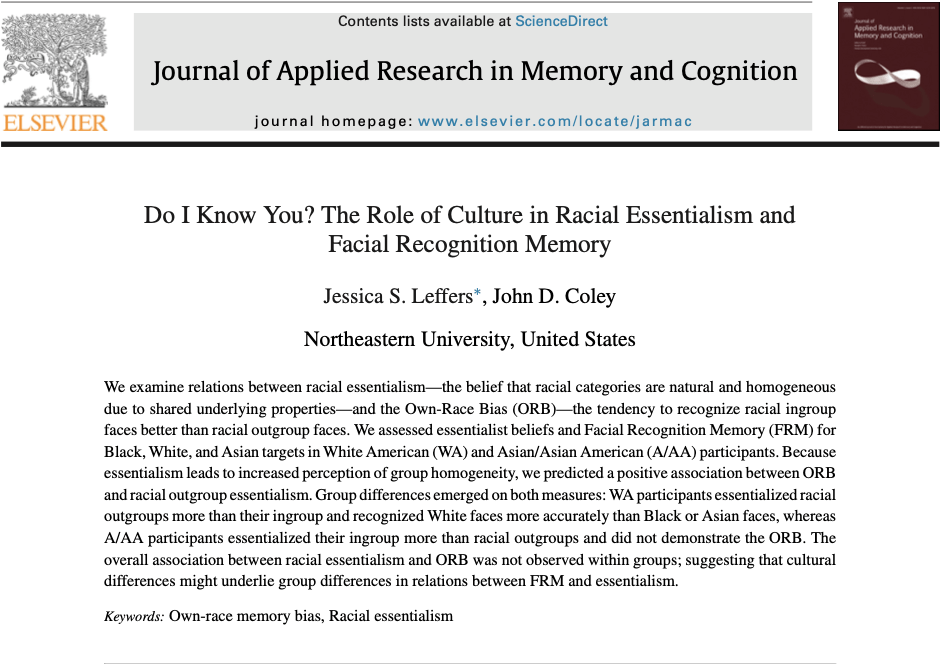This past February, Jessica Leffers, fifth year doctoral student in the CORE Lab, published her work in the Journal of Applied Research in Memory and Cognition.
Her work examined the role of culture in racial essentialism – the belief that members racial categories have underlying properties that make them natural and homogenous – among White American and Asian-American participants. She also examined whether or not these groups differ regarding the Own Race Bias (ORB), or the phenomenon that people recognize faces from their own racial group better than members of other racial groups. The third aim of the study was to investigate relationships between racial essentialism and the ORB.
This study collected data from 217 participants who self identified as “White American” or “Asian/Asian American” individuals. Participants completed measures such as the facial recognition memory task and an essentialism task, among other self-report questions assessing participants’ school and neighborhood diversity, attitudes towards racial outgroups, and the amount of contact with racial outgroups.
Results indicate that White American participants essentialized their ingroup less than outgroups, while the opposite held true about Asian/Asian American participants, who essentialized their ingroup more than racial outgroups. Jessica speaks about how most studies investigating racial essentialism focus on essentialism of the “other,” however, these differences were driven by differences in essentialization of racial ingroups, or the “self,” resulting in a novel finding. These differences are thought to originate from variations in cultural values of individualism and collectivism.
When looking at group differences regarding the ORB, White American participants displayed the ORB through showing better recognition memory for White faces than Black or Asian. The Asian/Asian American participants did not display the ORB for White faces, a finding that is surprising due to past research replicating the ORB in Asian/Asian American participants.
Lastly, findings showed that racial essentialism and the ORB were related at the group level, but not at the individual level. That is, White American participants were less likely to essentialize their ingroup and more likely to display the ORB, than Asian/Asian American participants, but the relationship was not evident within groups. These differences are thought to stem from cultural context rather than individual cognitive processes.
In future research, Jessica seeks to continue this work by teasing apart sub-components of essentialism and how they might impact thinking about race.
Leffers, J. S., & Coley, J.D. Do I Know You? The Role of Culture in Racial Essentialism and Facial Recognition Memory. Journal of Applied Research in Memory and Cognition (2021).
